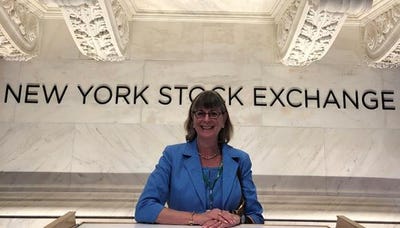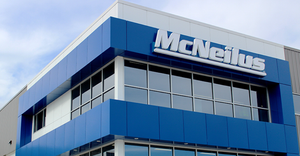Trend Spotting in the Third Quarter 2019 Reports
In this month’s edition of Business Insights, we discuss emerging trends in the publicly-traded solid waste companies’ third quarter earnings results.
Over the past two weeks, the publicly-traded solid waste companies reported third quarter 2019 results and held follow-up conference calls. In this month’s edition of Business Insights, we highlight the similarities and differences and discuss emerging trends.
Price-led Organic Growth Generally Tops Expectations, but Special Waste a Question
Waste Management (WM), Republic Services (RSG) and Advanced Disposal (ADSW) reported consistently strong yield of 2.6 percent, 2.8 percent and 3 percent, respectively, while Waste Connections (WCN) and Casella Waste Systems (CWST) reported solid waste pricing that topped 5 percent. But the highlight for several of the companies was landfill pricing, with WM and RSG reporting landfill municipal solid waste (MSW) yield of 3.7 percent and 3.3 percent, respectively, which were characterized as decade highs, while CWST’s landfill pricing rose 6.6 percent. Increasing cost pressures and focused discipline drove the increases, while CWST’s pricing was also aided by rising Northeast capacity constraints. The price increases were characterized as (at least) sustainable and likely represent a secular step-up trend, buoying the expectation that these strong overall pricing levels would continue into 2020 and beyond.
Volume figures were more of a mixed bag, with lingering effects of “non-regrettable” shedding of unprofitable accounts impacting RSG and CWST, such that their volumes were close to flat. WM posted industry-leading volume growth of 2.7 percent, and WCN’s volume growth was ahead of expectations at 0.9 percent, though the company called out a “pull-forward” of special waste activity. Although all the players signaled strong commercial and MSW volumes, with service increases exceeding decreases and positive net new business, the outlook for special waste was a differentiating factor between the companies. WM noted seeing more of a “wait-and-see” approach from its industrial customers, while WCN spoke to a lack of visibility in special waste, citing lower volume expectations for the fourth quarter. On the other hand, RSG and CWST are not seeing any hesitation, or weakness, in the special waste line. That said, the players generally expected flat to positive volumes looking out into 2020—particularly as the shedding of accounts is expected to end next year.
Commodity-based Business Woes Worsen, but Divergent Outcomes Emerge
Although the price of old corrugated cardboard was fairly stable in the third quarter, all the companies reported that they had to contend with further sequential recycled commodity price weakness in the third quarter. That said, WM, RSG and CWST, through a combination of fees, processing changes and contract restructuring, are, at a minimum, blunting the negative price impact. WM noted that the negative 1 cent impact from the recycling line of business in the third quarter would have been 8 to 10 cents, without the actions it has taken. RSG noted that it also expects the EPS sensitivity impact from changes in recycled commodity prices to moderate next year. With regard to contract restructuring, RSG cited that roughly a third of its municipal collection contracts and about 55 percent of its contracted processing volumes have been repriced. CWST was still able to say that given the success of its SRA fee, it still expected recycling to be a $5 million EBITDA tailwind this year versus last year.
The overall situation for WCN has worsened, however. Given the greater franchise nature of its business, coupled with its higher vulnerability to third-party materials recovery facility processing costs, it must rely more on increasing pricing at the curb to recover rising recycling costs and lower prices. As a result, its recycling results actually worsened from second quarter levels and expectations, as the decremental margin to lower recycled prices has widened to 150 basis points from an estimated range of 100 to 150 basis points. The landfill gas renewable energy credit (or RINs) fallout has also widened—WCN first flagged this in the second quarter, but for WM it became material enough in the third quarter for management to also call it out as a headwind for 2019. Also related to falling energy prices, WCN downgraded its expected exploration and production waste quarterly revenue estimates on a go forward basis, given declining rig count in the shale basins.
As a result of the greater-than-expected commodity-based headwinds, overall EBITDA results generally came in roughly in line to a touch under expectations, and overall margins generally declined. The underlying solid waste operations continued to shine, however, with solid waste operating EBITDA margins noted as up 50 to 60 basis points for WM, RSG and WCN.
Operating Cash Flow Drives Confidence in Free Cash Flow Guidance
Despite recycling and RINs, operating cash flow was very strong across the board, driven by the strength in the solid waste operations. RSG and WCN expect to be at the top end, or exceed, free cash flow (FCF) guidance for the year. And, despite higher capex spending than originally expected, both WM and CWST reaffirmed FCF guidance.
M&A Expectations Still Heightened
All the companies spoke to a robust pipeline and expectations for a continued, heightened mergers and acquisitions (M&A) environment into 2020. WCN had relatively modest acquisition activity in the third quarter but noted it had more than $600 million in offers outstanding. CWST has acquired $52 million in revenues year-to-date (versus a target of $20 million to $40 million) and will likely take a fourth quarter pause to digest. The rollover impact for 2020 revenues is considerable for both companies—both go into 2020 with 3 to 4 percent of revenue growth “baked in” from this year’s acquisitions, though for WCN that number is contingent on the current offers outstanding coming to fruition late this year or early next year. Year-to-date, RSG has spent $490 million on acquisitions and continues to target $550 million, while WM has spent $513 million. RSG will also have a benefit of at least 1 percent to top line growth from acquisitions rolling into 2020. WCN characterized seller expectations as up—on the order of 1 to 1.5 turns—on the EBITDA multiple.
Glimpses into 2020: Strong Price, Positive Volumes and Underlying Margin Expansion
RSG gave the most explicit 2020 guidance—both a preliminary EPS and FCF range. Its outlook for FCF caused a bit of consternation—at the midpoint it is roughly flat with 2019 guidance—but management noted higher capex that is unlikely to recur in 2021 and an unusual working capital headwind. RSG’s underlying assumptions include continued strong pricing, positive volumes and total company margin expansion, despite continued recycling headwinds. WCN gave some preliminary thoughts on 2020, forecasting 8 to 10 percent revenue growth (with 4 to 6 percent organic), with underlying solid waste margin expansion. Its rough volume guidance of +/- 1 percent prompted some questioning, but management noted it was prudence, not anything they were currently seeing in economic trends, that underlay the assumption. CWST also had some general 2020 commentary—strong pricing, positive volumes and margin expansion are all expected. It should be noted that across the board, however, margin expansion assumptions and EBITDA estimates for 2020 were generally modestly trimmed by the analysts. As recently as the second quarter, recycling and RINs were thought to be more neutral in 2020, but now look as though they will continue to be (at least) a first half headwind for all the companies. The only exception was CWST, which still sees recycling as a 2020 tailwind.
Leone Young is the principal of LTY ERC, LLC, providing consulting and research services to, and conducting special projects for, the environmental services industry, primarily the solid waste sector.
About the Author
You May Also Like




